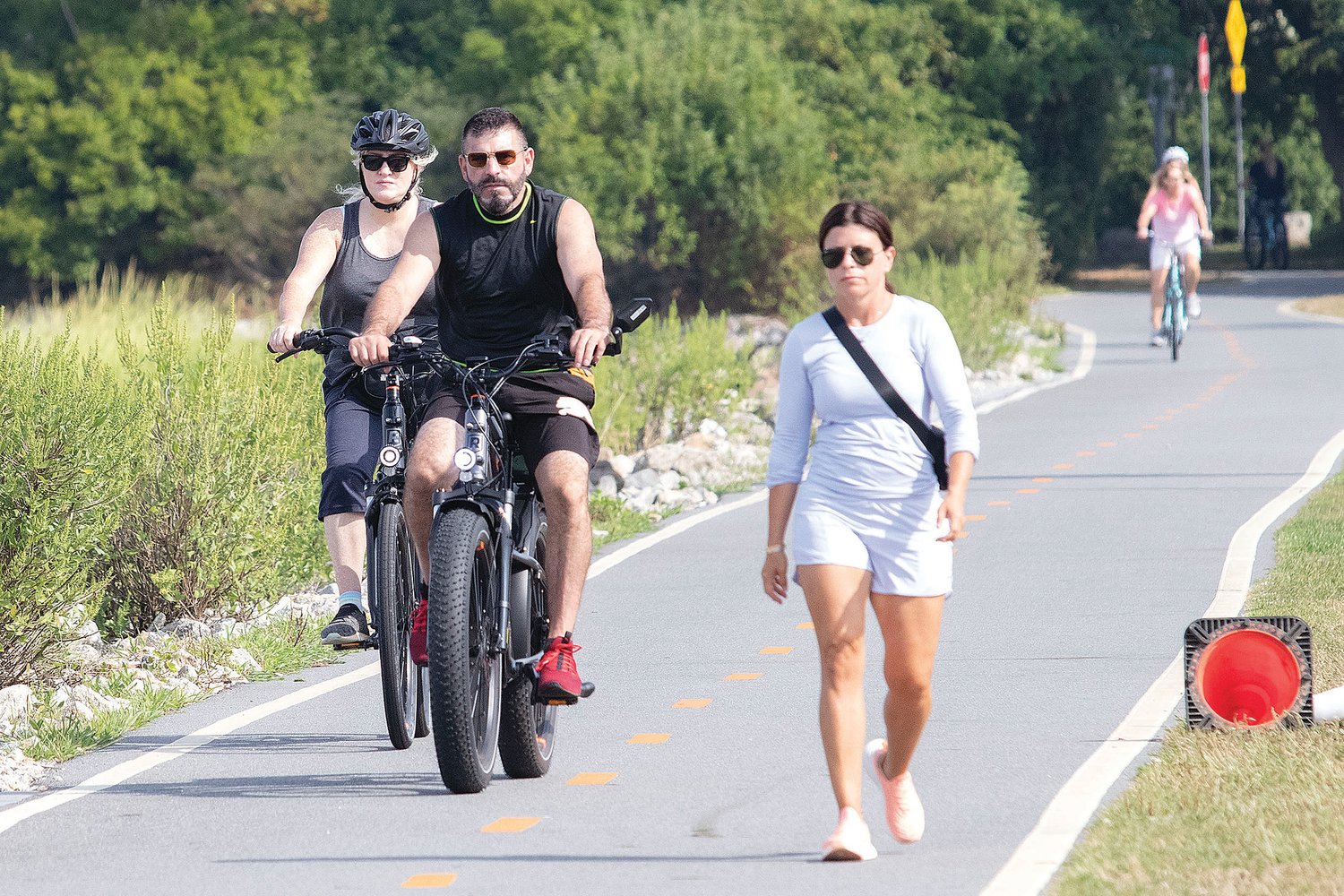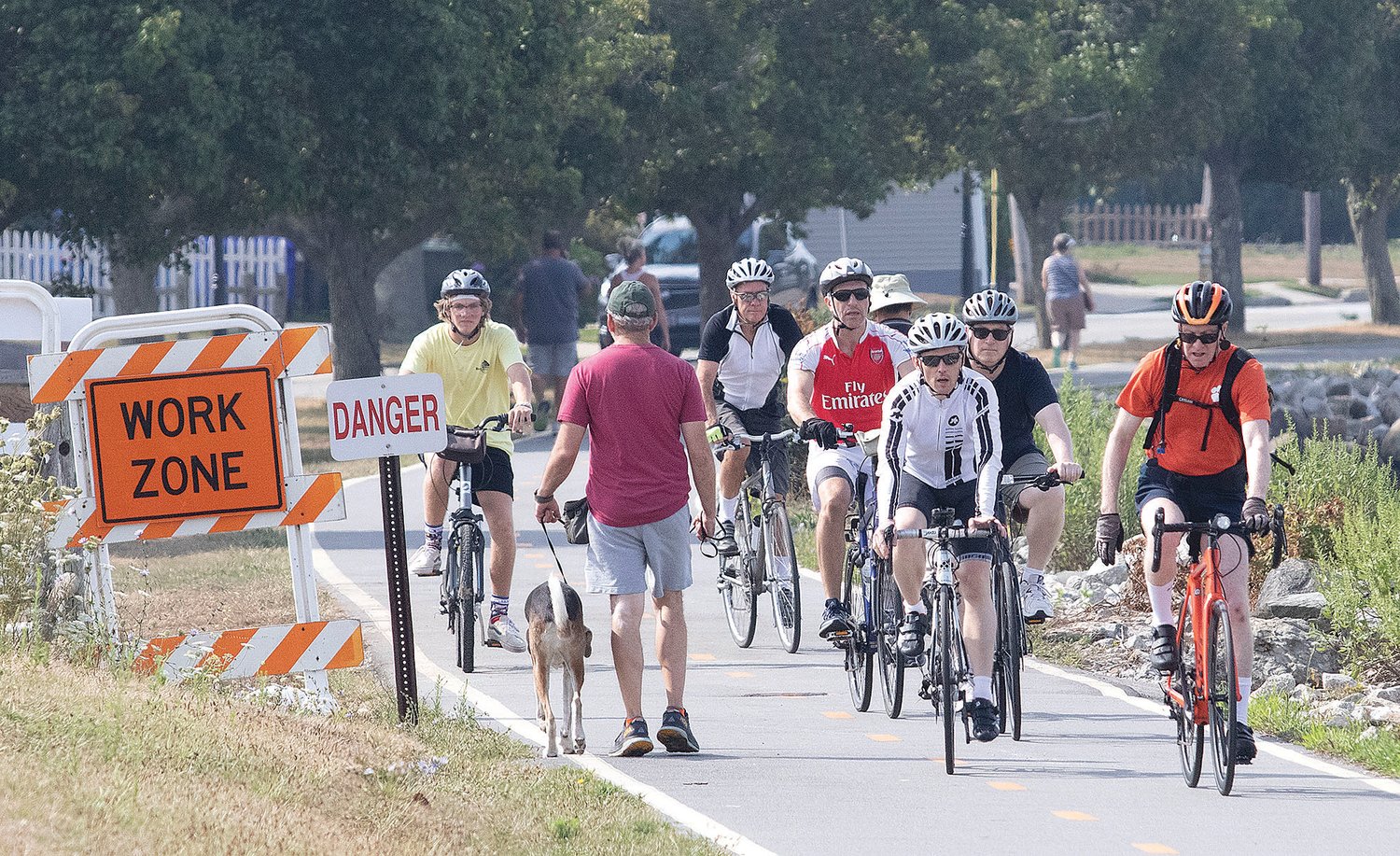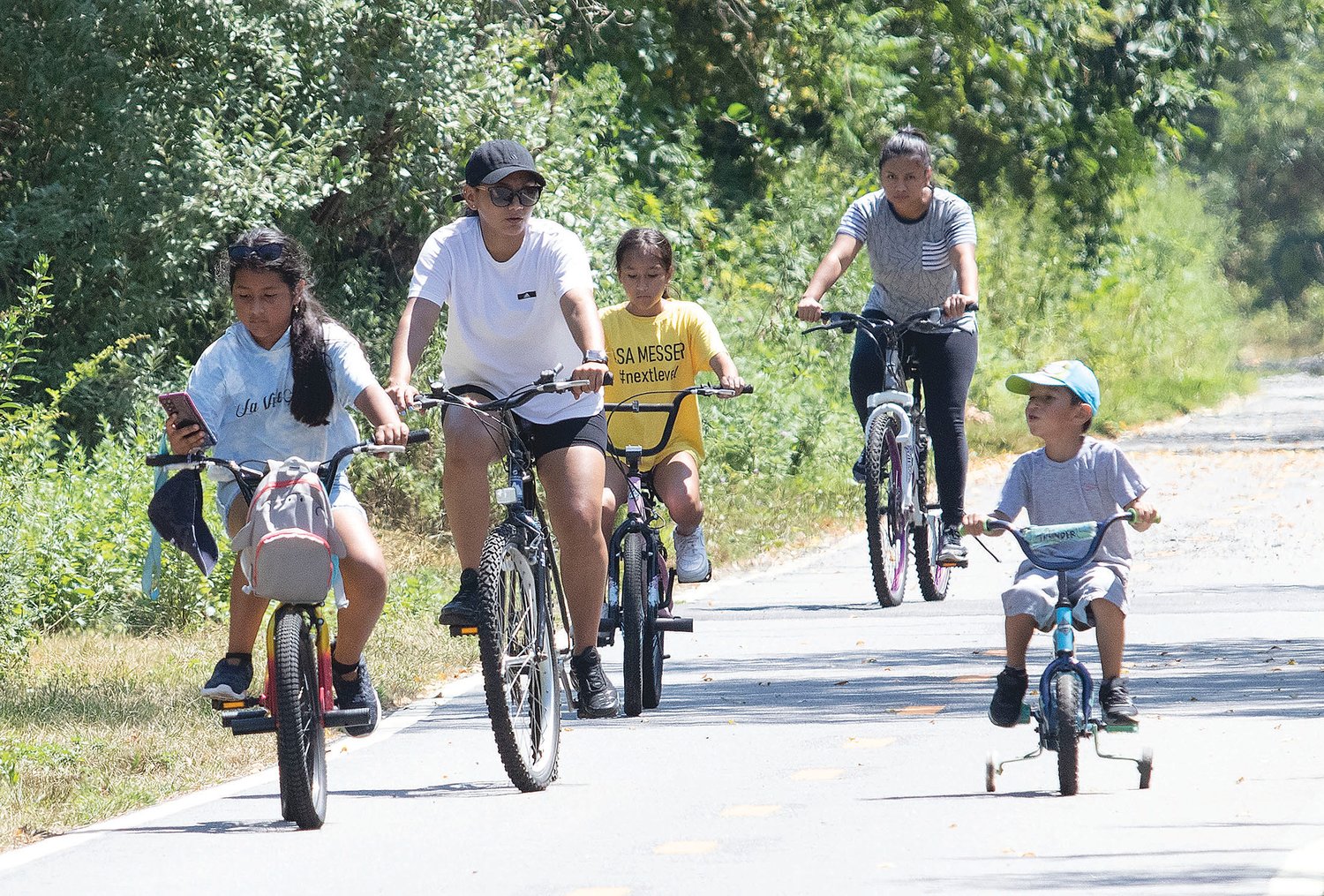- WEDNESDAY, APRIL 24, 2024
E-bikes on bike paths — Not allowed and not enforceable
Are electric bikes, scooters and skateboards allowed on bike paths? A state agency and state law do not seem to agree.
Amid increasing reports of accidents or near-misses on the East Bay Bike Path between people riding electric bicycles and everyone else, Rhode Island lacks clarity on what is or is not allowed on its …
This item is available in full to subscribers.
Please log in to continue |
Register to post eventsIf you'd like to post an event to our calendar, you can create a free account by clicking here. Note that free accounts do not have access to our subscriber-only content. |
Day pass subscribers
Are you a day pass subscriber who needs to log in? Click here to continue.
E-bikes on bike paths — Not allowed and not enforceable
Are electric bikes, scooters and skateboards allowed on bike paths? A state agency and state law do not seem to agree.

Amid increasing reports of accidents or near-misses on the East Bay Bike Path between people riding electric bicycles and everyone else, Rhode Island lacks clarity on what is or is not allowed on its designated bicycle pathways. While the Rhode Island Department of Environmental Management (DEM), which has authority over the state’s bike paths, believes there is a clear policy governing so-called “e-bikes” — they’re not allowed, according to DEM — local law enforcement may not see things as clearly.
State law does not bolster DEM regulations, thus undermining police officers’ ability to enforce those regulations on e-bike users zooming around the state’s bike paths.
The first thing to understand is what constitutes an e-bike, as not all e-bikes are the same. Though Rhode Island has not yet adopted a clear policy, more than 30 states across the country have adopted a “three-class” system for distinguishing electric bikes. According to a bill passed in June in the Rhode Island House of Representatives (but stalled in the Rhode Island Senate), the classes are defined in the following manner:
- Class one e-bikes have an electric motor, which kicks in only when the biker is pedaling, and stops providing assistance when it reaches 20 mph.
- Class two e-bikes are equipped with a throttle-assisted electric motor, which similarly stops assisting the rider at 20 mph. This is the only class of e-bike that does not require the rider to pedal to use the electric motor.
- Lastly, class three bikes have an electric motor that only works when the cyclist is pedaling, and stops aiding the rider when it reaches 28 mph.
What are the rules?
As posted on signs throughout the 14.5-mile East Bay Bike Path, “motor vehicles” are strictly banned. However, the confusion lies in what is a motor vehicle. Does this include e-bikes, e-scooters, e-skateboards and other electric modes of transportation?
According to DEM spokesperson Jay Wegimont, electrically propelled devices – like e-bikes – are not allowed on the East Bay Bike Path, the Blackstone River Bikeway or other state properties without specific permission.
However, as stated in Rhode Island General Law 31-5-1, electric motorized bicycles are not considered “motor vehicles” under the law. This means there is no specific statute which prohibits the use of e-bikes on the bike path, Major Brian Burke of the Bristol Police Department said. Therefore, e-bikes are not restricted from the bike path as far as law enforcement is concerned.
How are they enforced?
Though the bike path is under the authority of DEM, it is up to the police forces of individual towns to regularly patrol the bike path for traffic violations. The 32-member DEM Division of Law Enforcement does respond to reports of incidents or injuries along the path and often requests assistance from local police when incidents occur, Wegimont said.
Burke said the Bristol police department requires officers to train on bicycles through the International Police Mountain Bike Association. However, he said the department does not have sufficient staffing to regularly patrol the East Bay Bike Path.
“The bike path is unique because it falls under the jurisdiction of the town and falls under the jurisdiction of the state,” Burke said. “The state police, DEM law enforcement, Bristol Police, Warren Police, East Providence … there’s a lot of different entities that have enforcement capability regarding the East Bay Bike Path. But to say that we have officers that are dedicated, and that’s all they do is patrol the East Bay Bike Path, we unfortunately cannot do that.”
Burke stressed that it is most important that riders on any type of bike, electric or not, follow regular traffic laws, as if they were behind the wheel of a car.
Where do e-bikes go from here?
State Representative Rebecca Kislak, of Providence, said Rhode Island laws need to be modernized to accommodate the new technology of electrically-propelled vehicles. This is why she sponsored the e-bike regulation bill during the past General Assembly session in the State House.
Kislak said a regulation bill would make the legal grayness of e-bikes more clear. Though it ultimately did not pass the Senate, the bill’s sponsors plan on pursuing it once again when a new legislative session begins.
“I also was skeptical of e-bikes maybe five or eight years ago, because if you're going to bicycle, it should be about the exercise, and you shouldn't cheat with a motor,” Kislak said. “But then I went for a ride with a friend who has a disability that impairs her ability to walk or travel far distances, and I talked about this in my testimony when I introduced the bill, I experienced firsthand how wonderful it is to open the bike path to people who maybe couldn’t access it otherwise.”
Her proposed bill requires e-bikes to be classified using the “three-class” system. In addition, it stipulates that all e-bikes would be required to have a speedometer and a label identifying the bicycle’s classification number, top assisted speed and motor wattage.
The bill also says local governments cannot restrict the use of e-bikes, only how fast they’re allowed to go. Class three bikes (which are capable of going over 20 mph) must not exceed 20 mph. Therefore, the bill seeks to limit all e-bikes to 20 mph unless a different speed limit is posted by the town.
When it comes to helmet requirements, the bill lays out that all riders under 15 must wear helmets on electric bikes. Under the proposed law, all riders of class three bikes would be required to wear helmets, no matter their age. Lastly, the bill would prohibit anyone under 16 from riding a class three bike, except as a passenger.
E-bikes in the community
For Bristol Bikes owner Mark DeStefano, electric bikes aren’t just a pastime, they’re a business. Located half a mile from the southern end of the East Bay Bike Path in downtown Bristol, Bristol Bikes carries both traditional and electric bikes for rent and sale.
“I started selling electric bikes about nine years ago, and I was just selling one brand, and I was probably selling about 80 or 85 bikes a year. Every year since then, it has increased,” DeStefano said. “Last year, we sold about 200 electric bikes. We've really seen it take off, especially after the pandemic.”
DeStefano said that riding an e-bike is “no more unsafe” than riding a fully self-pedaled bike. In fact, electric motors can help riders cross intersections faster, which may even make e-bikes safer than normal bikes, he said.
In addition to safety features, electric bikes offer equal opportunity to those who can’t otherwise enjoy the bike path because of age, injury or disability, DeStefano said.
When it comes to regulation, DeStefano said he’s done his own research into the rules around electric bikes on the bike path, and that there is definite confusion when it comes to DEM policy.
“If you look at the definition of a motor vehicle on the Department of Environmental Management site, it says a ‘motor vehicle’ is a self-propelled vehicle,” DeStefano said. “Well, class one electric bikes are not self propelled, you have to pedal a class one bike. Since we've had so much controversy about electric bikes, we've actually gone ahead and disabled all the throttles on our rental bikes to make them class one bikes.”
As Bristol Bikes continues to rent out and sell class one e-bikes, DeStefano said that proper safety precautions, like wearing a helmet, reading street signs and staying to the right when riding, are important for all bikers, not just e-bikers.
“The key thing is, when it comes to safety, it doesn't matter what kind of bike it is,” DeStefano said. “It’s more about the responsible rider.”
Katie Langley is a student at Qunnipiac University and editor of her campus newspaper, doing a summer internship with East Bay Media Group.
Other items that may interest you











